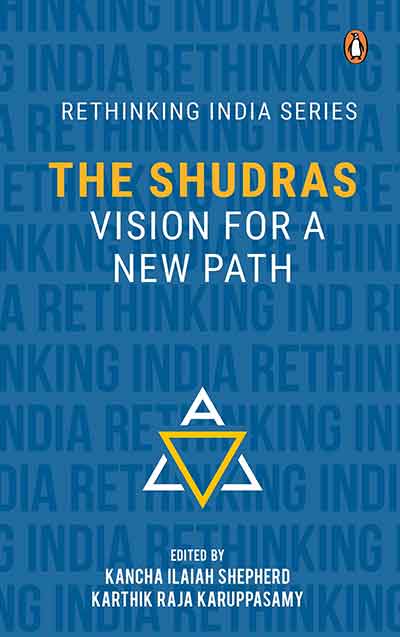Written by Sharad Yadav and Omprakash Mahato
 During the Emergency (1975–77), all socialist leaders came together on one platform and formed the Janata Party government in 1977. In its manifesto, the Janata Party promised to undertake measures for social and educational upliftment of people belonging to backward castes and communities. The social upliftment of backward castes once again became the subject of mainstream discourse in Indian polity and society. To fulfil its promise of social and educational empowerment of the backward castes, the Janata Party government formed a six-member committee under the chairmanship of B.P. Mandal, former chief minister of Bihar, on 1 January 1979. This commission was popularly known as the Mandal Commission. The Janata Party government was committed to the cause of social and educational empowerment of farmers, workers and people belonging to backward castes. Rather than striving to undo the historical injustice done to these communities, what they were ensuring was the delivery of social justice.
During the Emergency (1975–77), all socialist leaders came together on one platform and formed the Janata Party government in 1977. In its manifesto, the Janata Party promised to undertake measures for social and educational upliftment of people belonging to backward castes and communities. The social upliftment of backward castes once again became the subject of mainstream discourse in Indian polity and society. To fulfil its promise of social and educational empowerment of the backward castes, the Janata Party government formed a six-member committee under the chairmanship of B.P. Mandal, former chief minister of Bihar, on 1 January 1979. This commission was popularly known as the Mandal Commission. The Janata Party government was committed to the cause of social and educational empowerment of farmers, workers and people belonging to backward castes. Rather than striving to undo the historical injustice done to these communities, what they were ensuring was the delivery of social justice.
After the formation of the Mandal Commission, I met then Prime Minister Morarji Desai, Jagjivan Ram and Chaudhary Charan Singh and congratulated them on the much-needed initiative. Unfortunately, due to internal conspiracies and politics, the Janata Party government fell in 1979. In January 1980, the Congress party won the election with a majority and formed the government. Based on the 1931 Census data, using eleven social, educational and economic indicators, the commission identified 3743 different castes and communities as members of Other Backward Classes. The OBC category, it estimated, comprised 52 per cent of the Indian population. I arranged many meetings between B.P. Mandal and Chaudhary Charan Singh in 1979. The affluent Jat community of Uttar Pradesh and Haryana were naively against the idea of being listed as a backward class.
A convoy of local Jat leaders from Bharatpur met Chaudhary Charan Singh to request him to make sure Jats were not listed as a backward class in the Mandal Commission report. Mandal had not included them in the list in the first place. The commission submitted its report to the president of India, Giani Zail Singh, in December 1980. One of the major recommendations of the Mandal Commission was to provide 27 per cent reservation to ‘socially and educationally backward classes’ for jobs in central services and public undertakings. After submitting the report to the president, Mandal met Prime Minister Indira Gandhi. She made him wait for a long time, but still, the meeting went as expected. After meeting her, Mandal was distressed and frustrated. He came straight to my house and described the meeting, saying, ‘Main apni report Ganga mein visarjit kar aaya hun.’ (I have immersed my report in the Ganga.) He was confident that the government would not proceed with it. The report was tabled in Parliament, but regrettably, I was not a member of Parliament in the seventh Lok Sabha. Nevertheless, I tried my best to mobilize parliamentarians of the Lok Dal and the Janata Party to encourage a meaningful discussion on the Mandal Commission report. But his instinct was right. The report was elbowed into cold storage. On 11 October 1988, the Janata Dal was formed by the merger of the Jan Morcha, the Janata Party, the Lok Dal and the Congress (S), and Vishwanath Pratap Singh was elected as party president. In the 1989 general election, a federation of the Janata Dal with various regional parties, including the Dravida Munnetra Kazhagam, the Telugu Desam Party and the Asom Gana Parishad, came into being, called the National Front (India), with V.P. Singh as convener and N.T. Rama Rao as president.
I always believed that the Mandal Commission was a remarkably unique initiative that exposed social inequalities in Indian society and ascertained the historical injustices to the backward castes with facts and statistics. However, for ten years, governments had dodged its recommendations.
The Mandal Commission report had included the backward classes of the Hindu, Muslim, Sikh and Christian communities. The Janata Party and the Lok Dal started a movement to ensure justice to all these backward classes. Their manifesto promised to implement the Mandal Commission recommendations. The people belonging to the backward classes became extremely hopeful and voted for the Janata Dal in the 1989 election. The National Front, with its allies, won the elections, earned a simple majority in the Lok Sabha, and V.P. Singh became the seventh prime minister of India in December 1989. Soon after the formation of the government, the hopes of the backward classes started diminishing as people in the government who previously belonged to the Indian National Congress did not wish for the Mandal Commission’s recommendations to be implemented. Their Bahujan politics was limited to gaining votes from backward classes and keeping them in the dark. Therefore, the backward classes were exasperated and dismayed by this attitude of the Janata Dal government. Socialist leaders were worried because of this crisis. The Lok Dal, with more than seventy parliamentarians, had supported the Janata Dal government but received a disproportionate share in the cabinet. Not only the prime ministership but even other important ministries like home affairs, external affairs, defence, etc., were given to parliamentarians of the Janata Dal. In this testing situation, it became troublesome to keep everyone together. Besides, the resentment among the backward classes was growing.
We, therefore, started mobilizing all socialist leaders and putting pressure on the Janata Dal government to fulfil its manifesto promise of implementing the recommendations of the Mandal Commission. We strongly believed that without this, no true justice would be served to Shudras. V.P. Singh’s entourage vehemently opposed the recommendations of the Mandal Commission. To overcome this, he established a committee under the chairmanship of Chaudhary Devi Lal, the deputy prime minister and a prominent Jat leader. He knew it was due to Chaudhary Charan Singh’s intervention that Mandal did not include Jats in the list of backward classes. However, many local Jat leaders and groups were putting pressure on their political leaders to be included in the reservation category. Taking advantage of the situation, V.P. Singh played a master stroke. He was sure that being the most prominent Jat leader, Devi Lal would not implement the Mandal recommendations without including Jats, despite the fact that he was against it. Chaudhary Ajit Singh, general secretary of the Janata Dal and minister of industry, also started campaigning for the rights of backward classes and asserted that Jats be included in the OBC list. Devi Lal was caught in a political dilemma: On the one hand, he did not want Ajit Singh to take credit for the inclusion of Jats as a backward class, and on the other, he could not risk the ire of his own Jat community by not including them. Therefore, V.P. Singh thought this would be the end of the discussion on the Mandal Commission.
This is an excerpt from the new book “The Shudras–Vision For a New Path” edited by Kancha Ilaiah Shepherd and Karthik Raja Karuppasamy. The book is being released today. In this excerpt Sharad Yadav, prominent Socialist leader, describes how the Mandal Commission report got implemented. This is a background story which has never been discussed in public. This is the first English article penned by Sharad Yadav. This book is being published by Penguin Random House. You can buy the book here
GET COUNTERCURRENTS DAILY NEWSLETTER STRAIGHT TO YOUR INBOX

















































